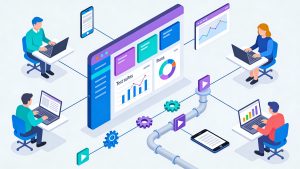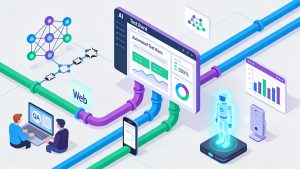The era of artificial intelligence is remaking software development at breakneck speed. As organizations accelerate digital initiatives, the scale of global software creation is skyrocketing. Estimates suggest more than 500 million new applications are built each year, and by 2030, this number may approach one billion. Despite this unprecedented growth, the number of professionals dedicated to quality assurance (QA) remains dwarfed by demand, with only 1.5 to 2 million testers worldwide. The result? A widening gap between fast software delivery and the ability to ensure every application is robust and reliable.
The QA Scaling Challenge in a Rapidly Automating World
Traditional manual testing, although invaluable for nuanced and context-rich validation, simply cannot keep pace with the industrial scale of today’s software production. Even with progressive automation, the underlying workforce gap highlights not just a resource shortfall but a paradigm shift: in the age of AI, quality is about more than just coverage—it’s about strategy, adaptability, and the intelligent application of tools.
Emergence of the Hybrid Tester
In response to this evolving challenge, a new role has emerged: the hybrid tester. Hybrid testers represent a fusion of sharp human intuition and machine-augmented efficiency. They blend the contextual thinking and critical judgment of skilled manual testers with the power and speed of AI-powered automation. Instead of simply detecting bugs, these professionals design intelligent, adaptive testing strategies that elevate quality, mitigate risk, and enable software teams to release faster and with more confidence.
Where Human and Machine Intelligence Meet
Today, more than 80% of technology companies have prioritized automation-first QA strategies. The most forward-thinking organizations are moving beyond isolated test automation, advancing to genuinely hybrid teams where artificial intelligence enhances every stage of the testing lifecycle. From AI-generated test scripts and dynamic coverage analysis to smart test maintenance and continuous QA improvement, hybrid testers are essential to meeting the demands of agile and enterprise-scale development alike.
Hybrid testers are especially adept at aligning testing with real user behavior, optimizing coverage for impact, and rapidly surfacing issues as new code flows into production pipelines. In agile environments, they enable highly accelerated release cycles. In large organizations, they scale test orchestration to keep growing products resilient, secure, and trustworthy even as pace increases.
Leveraging AI for Smarter Quality
Recent industry research reveals tangible value from the hybrid approach:
- High-maturity QA teams are 1.3x more likely to use AI for test optimization.
- They are 1.8x more likely to apply AI to maintain and update tests as products evolve.
These findings signal that hybrid testers are not a distant aspiration but an operational reality for industry leaders. By weaving AI into core workflows, these teams enhance test coverage precisely where it matters, reduce human error, and respond rapidly to shifting requirements—all while reserving the human touch for critical thinking and edge-case insight.
The Strategic Imperative: Evolve or Fall Behind
Artificial intelligence is not just reshaping software creation—it’s fundamentally redefining what it means to assure quality in digital products. Scaling effective QA is no longer simply about hiring more manual testers; it’s about amplifying human expertise with technology to achieve exponential results.
Hybrid testers represent this inflection point. By merging manual and automated strengths, these professionals transform QA from a reactive “gatekeeper” function into a proactive, strategic engine. They drive speed, resilience, and user trust—core qualities as organizations race to innovate in competitive digital markets.
The Future of Testing: Opportunity for Pioneers
Industry forecasts project the global software testing market to soar to as much as $80 billion within the decade. The leading force behind this growth will not be sheer manpower, but rather intelligent, AI-powered, human-led testing models—led by hybrid testers.
Companies investing in hybrid QA capabilities today are positioning themselves to set the standards for tomorrow’s digital quality. Hybrid testers stand at the center of this transformation, pioneering new techniques, elevating standards, and future-proofing the software release process.
Organizations that adopt hybrid testing approaches will deliver products faster, respond to change with agility, and build deeper user trust—while those who hesitate may find themselves struggling as the pace of code and innovation continues to accelerate.
Conclusion: The Hybrid Tester as the Backbone of Modern QA
In the age of AI, QA professionals must evolve beyond traditional boundaries. The role of the hybrid tester—blending human expertise with machine intelligence—is becoming indispensable. As software development races forward, these professionals will drive quality at scale, bring strategic foresight to testing, and ensure that even as code speeds up, confidence in digital products remains high.
The future of quality assurance belongs to those who embrace the hybrid model. Teams that invest early in this new QA philosophy will build not just better products, but a lasting competitive edge in the AI-driven digital world.
Read more such articles from our Newsletter here.



